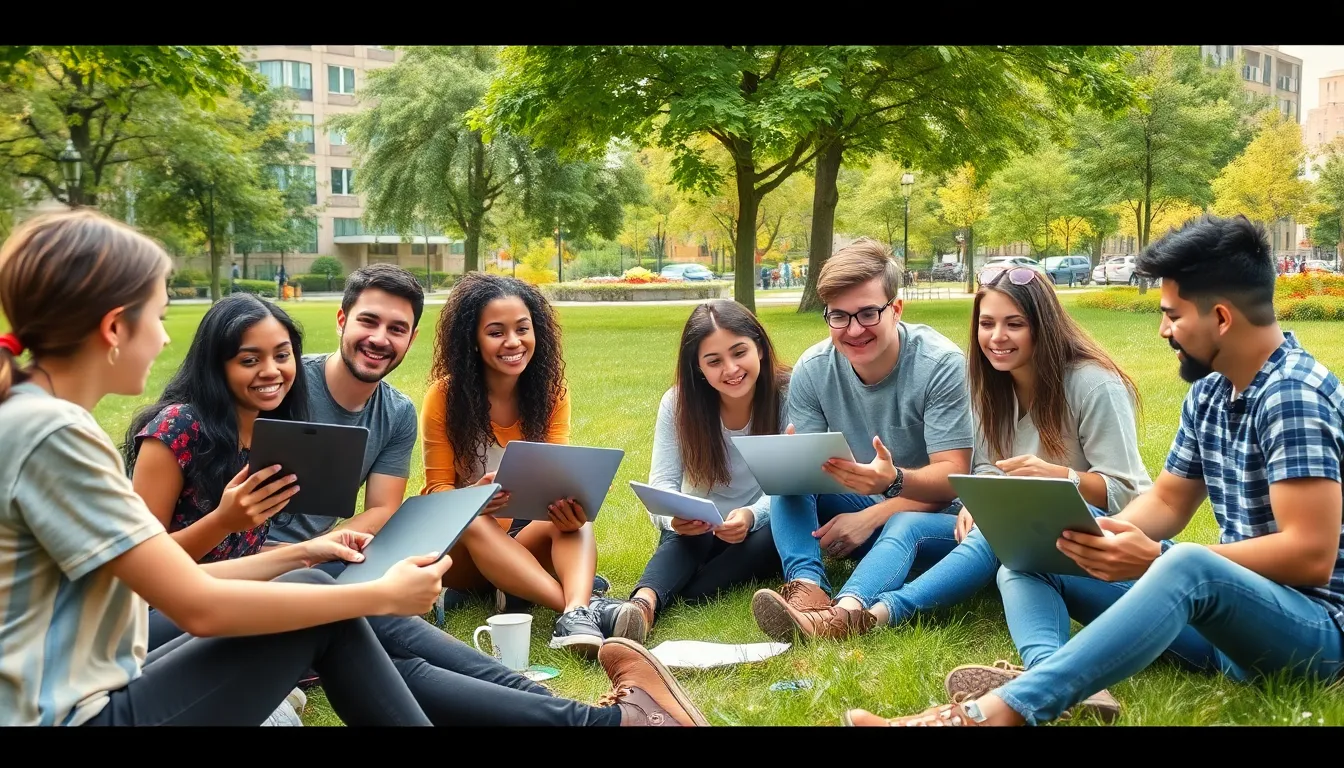In a world turned upside down by the pandemic, young voices are stepping up to make a difference. The UNICEF COVID-19 Youth Challenge invites the next generation to unleash their creativity and tackle pressing issues brought on by the crisis. Think of it as a global talent show where the prize is not just glory, but the chance to create real change.
UNICEF COVID-19 Youth Challenge
The UNICEF COVID-19 Youth Challenge motivates young people to harness their creativity in tackling pressing issues caused by the pandemic. Participants engage by developing innovative solutions that address challenges such as education disruption, mental health impacts, and economic inequalities. Solutions range from digital campaigns to community programs, encouraging diverse approaches.
Global participation reflects the universal nature of these challenges. Young innovators from various countries contribute perspectives unique to their regions. This collaboration not only fosters creativity but strengthens the global youth community dedicated to social change.
Recognizing the top submissions offers participants opportunities for significant visibility. Winners may receive mentorship, resources, and the chance to implement their ideas on a larger scale. Such recognition amplifies their voices and enhances their influence in their communities and beyond.
The initiative also aligns with UNICEF’s mission to advocate for children’s rights and well-being. Emphasis on youth involvement underscores the belief that young people hold the power to drive change. Awareness and action generate long-term benefits for future generations.
The UNICEF COVID-19 Youth Challenge serves as a platform for youth empowerment, creativity, and impactful solutions, responding directly to the needs arising from the pandemic. This ongoing initiative reflects a commitment to fostering a brighter future through collaborative innovation.
Goals and Objectives

The UNICEF COVID-19 Youth Challenge aims to empower young people while tackling pressing global issues resulting from the pandemic.
Empowering Young People
Youth empowerment stands at the forefront of this initiative. By encouraging young individuals to express their creativity, the challenge inspires innovative problem-solving. Participants generate solutions that address education disruption, mental health issues, and economic inequalities. This competition cultivates skills like leadership and teamwork, essential for personal growth. Mentoring opportunities facilitate the development of these young innovators, equipping them with tools and resources necessary to implement their ideas. Recognition of their work helps amplify voices of youth, showcasing their potential as change-makers within communities.
Supporting Global Health Initiatives
UNICEF’s challenge contributes significantly to global health initiatives. Engaging youth in this capacity fosters awareness of public health issues exacerbated by COVID-19. Participants devise creative campaigns that promote health education, enhancing community resilience. Collaborative projects focus on mental health support, bringing vital resources to those in need. As young innovators contribute diverse perspectives, they address health inequities across different regions. Overall, solutions emerging from this challenge strengthen the collective response to public health crises, affirming young people’s role in shaping healthier futures.
Key Initiatives and Programs
UNICEF’s COVID-19 Youth Challenge encompasses various initiatives and programs that empower youth to address pandemic-related challenges. Participants develop innovative solutions through two main avenues: digital solution development and community engagement.
Digital Solution Development
Digital solutions play a crucial role in this initiative. Youth harness technology to create platforms that facilitate remote learning, mental health support, and health education. Initiatives include developing apps that provide access to educational resources. Participants also build campaigns that promote awareness about COVID-19 prevention measures. Notably, young innovators collaborate with mentors to refine their ideas, ensuring they align with community needs. This aspect of the challenge highlights the importance of digital literacy and creativity in navigating challenges posed by the pandemic.
Community Engagement and Advocacy
Community engagement forms the backbone of the UNICEF COVID-19 Youth Challenge. Participants organize awareness campaigns that address pressing issues like mental health and economic disparities. Youth volunteers often host workshops to educate their peers about health and wellness. Initiatives encourage them to advocate for vulnerable populations affected by the pandemic. By collaborating with local organizations, young advocates create impactful programs that foster community solidarity. This grassroots approach allows youth to influence policy discussions and promote lasting change within their communities.
Impact and Success Stories
The UNICEF COVID-19 Youth Challenge has led to numerous impactful stories and innovations driven by young participants. These stories highlight the power of youth in creating solutions for urgent global issues.
Youth-Led Innovations
Innovations spearheaded by youth vary widely. Participants designed digital tools to enhance remote learning and mental health support. For instance, several youth created apps offering educational resources and platforms for peer counseling. Others initiated social media campaigns aimed at preventing virus spread and educating their communities about health practices. The creativity displayed emphasizes their critical role in tackling the challenges posed by the pandemic. Each solution reflects a deep understanding of local needs.
Partnerships and Collaborations
Collaborations play a pivotal role in the success of the challenge. Young innovators partner with local organizations, amplifying their impact and outreach. Many initiatives benefit from established networks, facilitating resource sharing and expertise exchange. Collaborative efforts often focus on awareness campaigns targeting vulnerable populations. By engaging with community leaders, young participants influence local policy discussions. Partnerships enable the blending of youth creativity with organizational support, maximizing the potential for lasting change. These strategic alliances showcase the importance of collective action in addressing public health crises.
Conclusion
The UNICEF COVID-19 Youth Challenge stands as a testament to the power of youth creativity and innovation in tackling pressing global issues. By empowering young people to develop solutions for education disruption and mental health challenges, this initiative fosters a sense of agency and leadership.
Through collaboration and mentorship, participants not only amplify their voices but also create meaningful change in their communities. The challenge highlights the importance of youth engagement in public health discussions and the potential for lasting impact. As these young innovators continue to address health inequities, they pave the way for a brighter and more resilient future.















